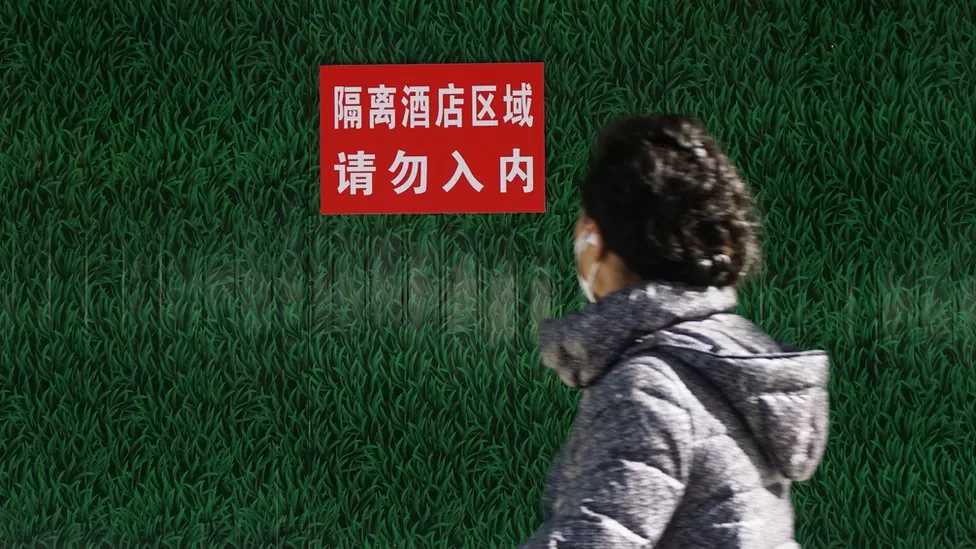China has announced that its requirement for travellers arriving in the country to go into quarantine will end on 8 January.
The measure is the latest in a series of restrictions to be lifted as China abandons its zero-Covid policy.
China is seeing an explosion in Covid-related infections and medical workers have said they are struggling to cope.
In his first comments on the changes, President Xi Jinping urged officials to do what was “feasible” to save lives.
State media quoted him as saying the country faced new situations demanding a more targeted response.
China has stopped publishing Covid statistics, but it is thought thousands of people may be dying every day.
Since March 2020, all passengers arriving in China have had to undergo mandatory centralised quarantine.
But the length of time has been progressively reduced, from three weeks originally to just five days at present.
Under the new rules, Covid will be downgraded from a Class A infectious disease to Class B, meaning that quarantine will no longer be enforced.
China’s about-turn on how it manages the pandemic has left Mr Xi in an uncomfortable position, analysts say.
He was the driving force behind the zero-Covid policy, which was blamed for restricting people’s lives excessively and harming the economy.
But having abandoned it, he now has to take responsibility for the huge wave of infections and hospital admissions, mainly among older people.
Public anger over the president’s handling of the pandemic is one of the areas in which he is most vulnerable.
Source: BBC News


